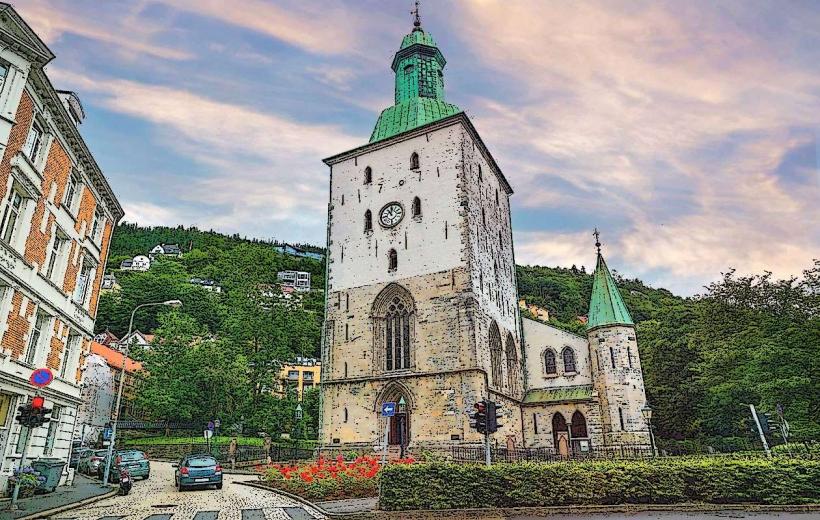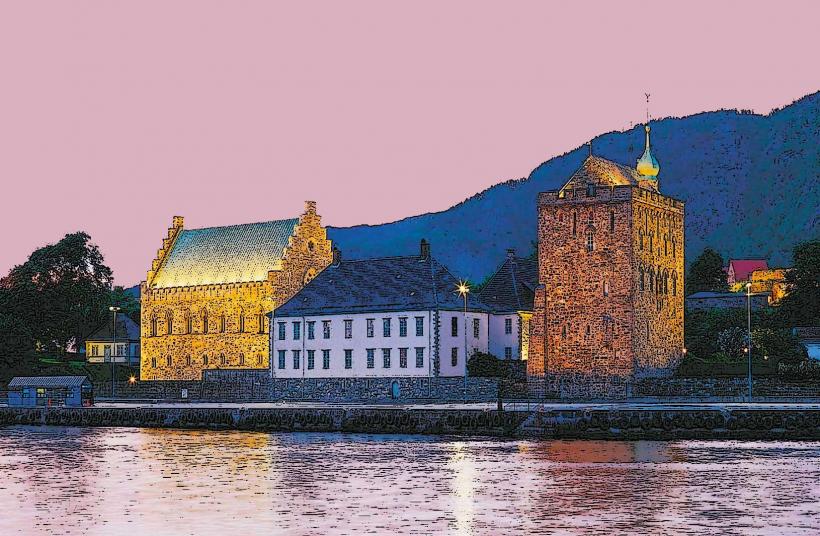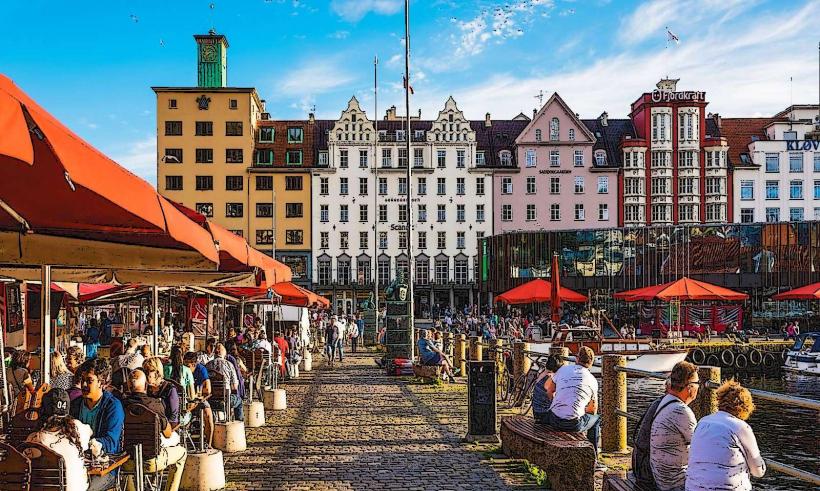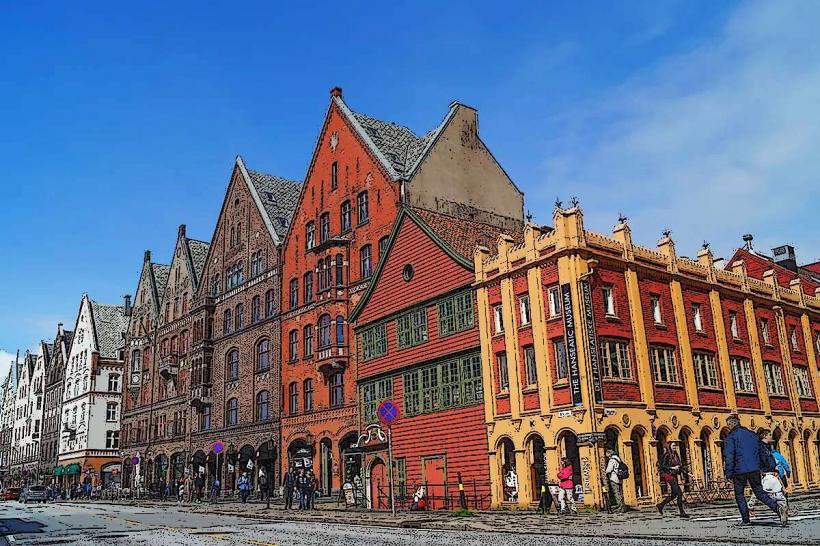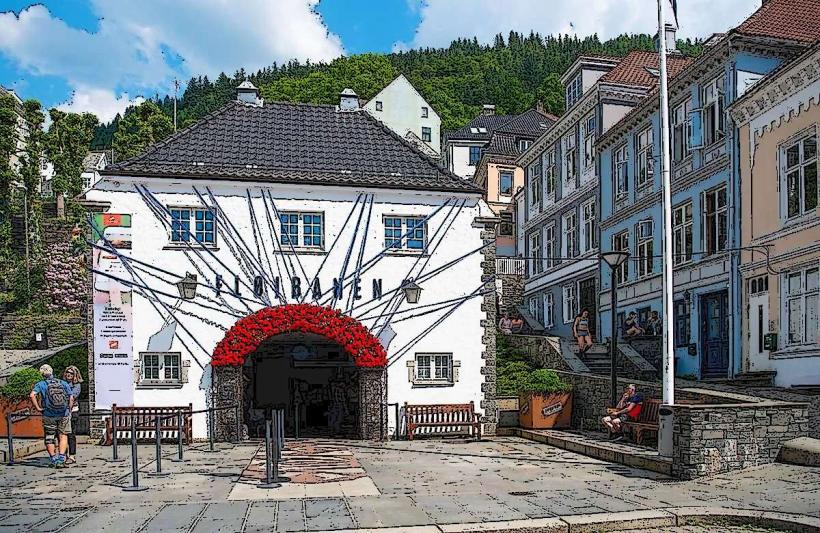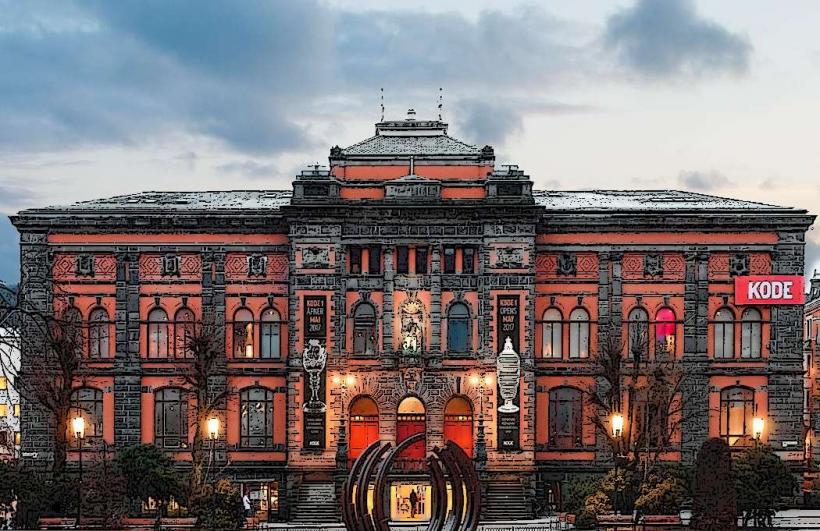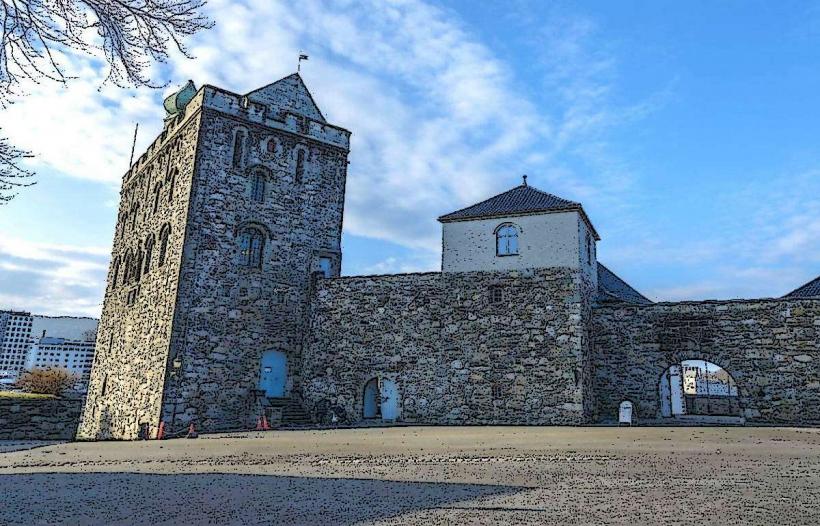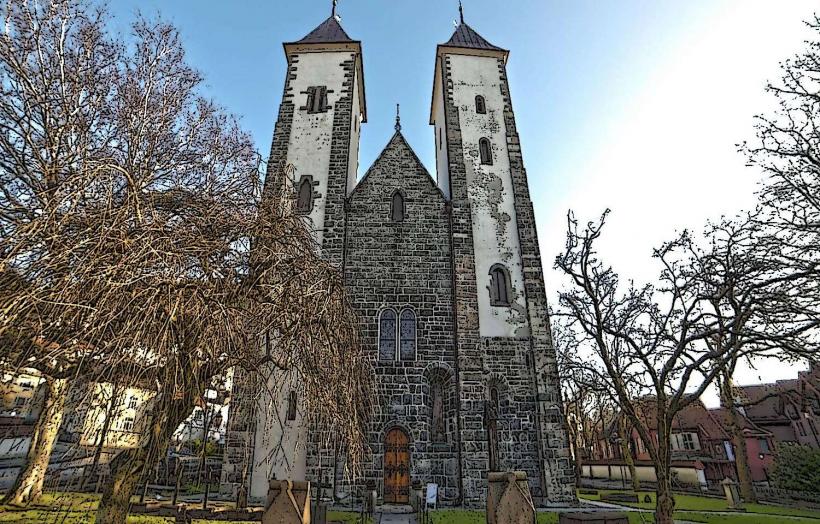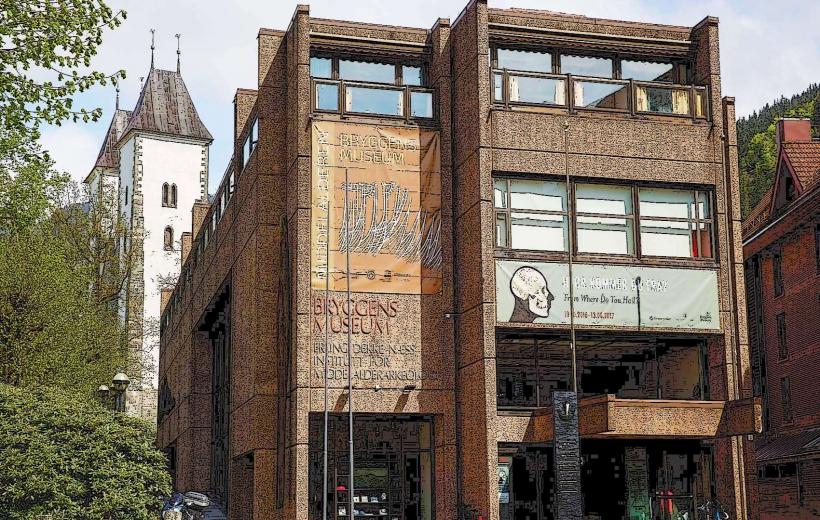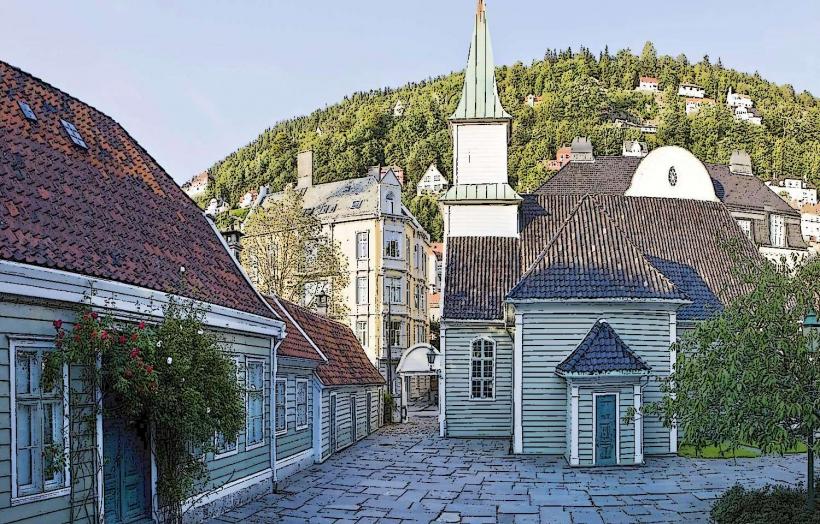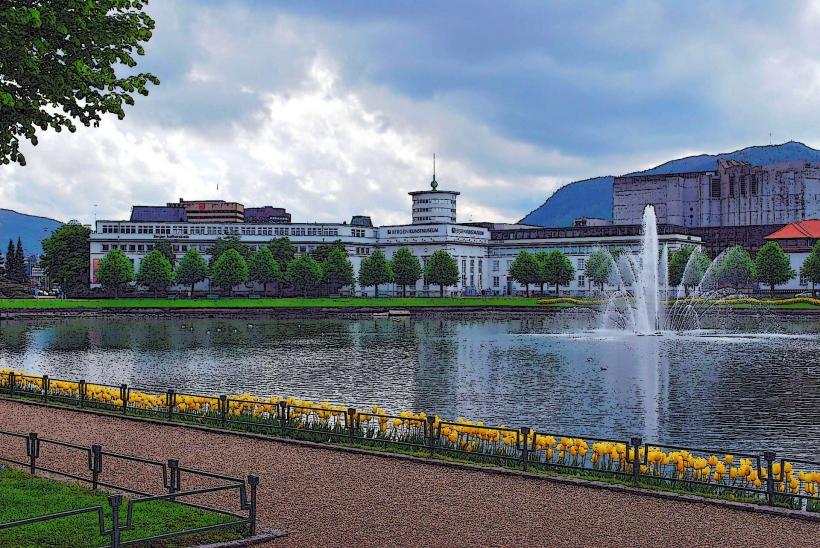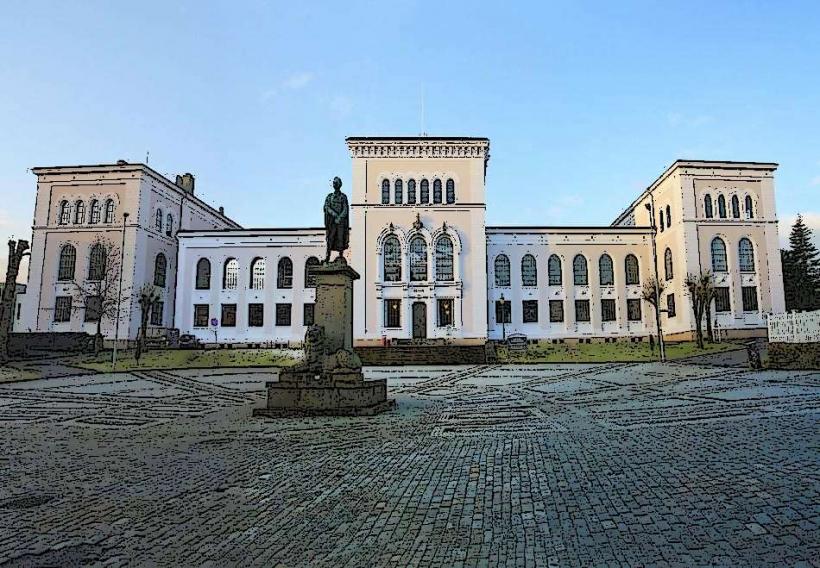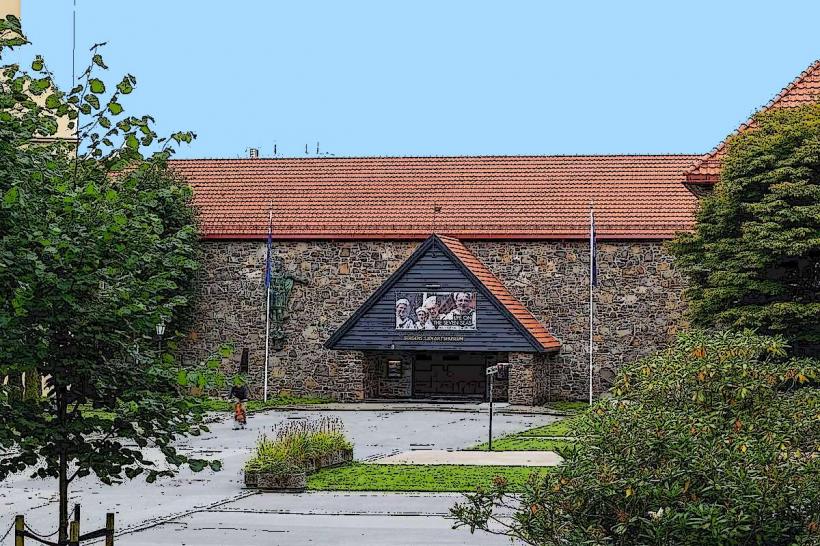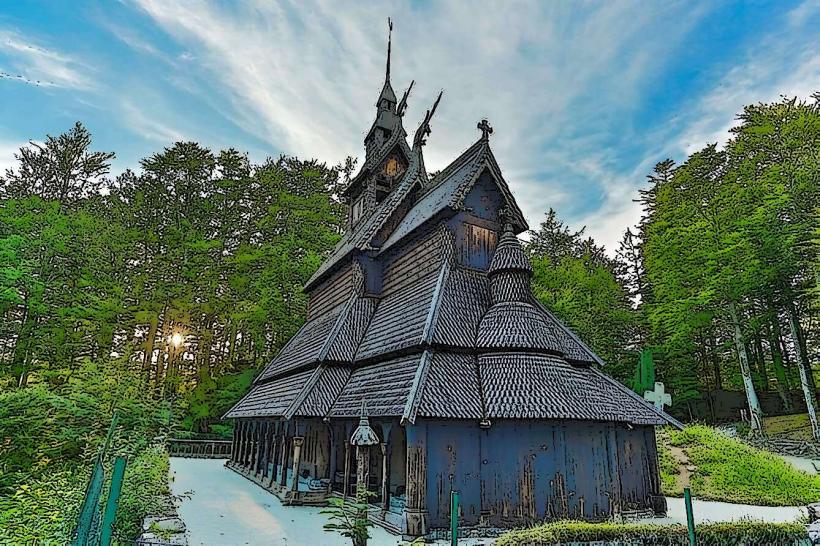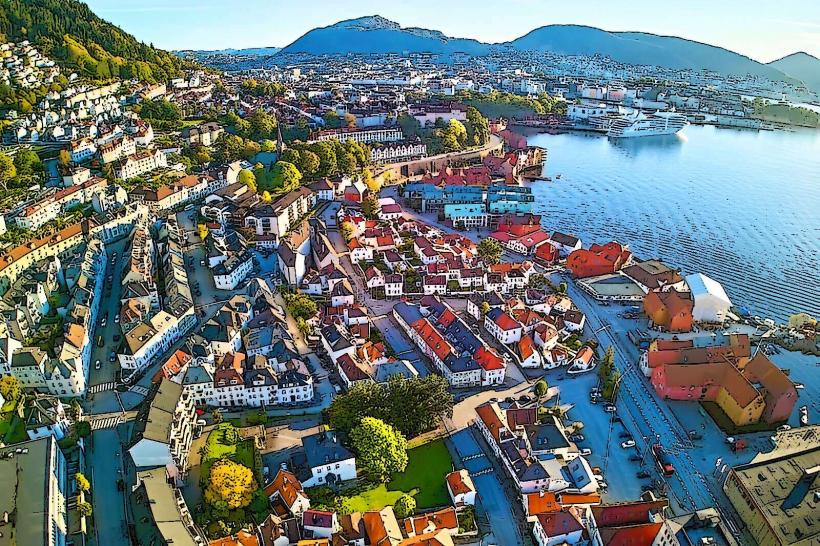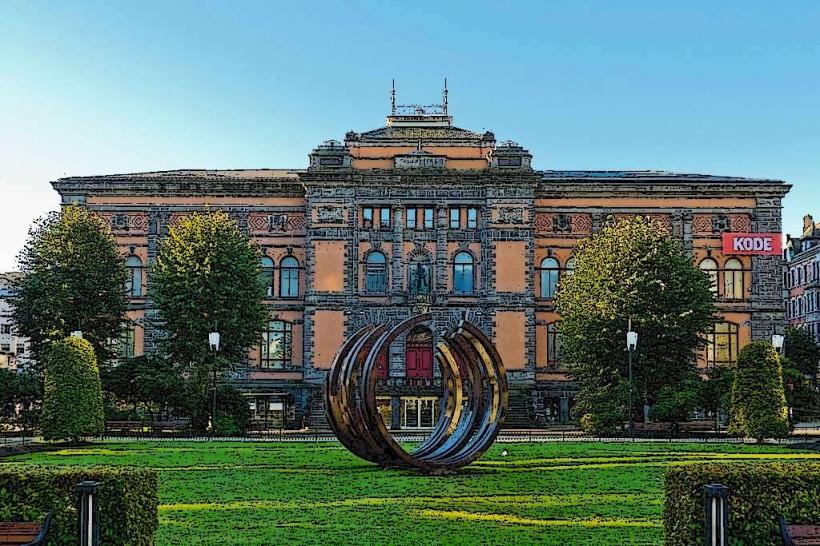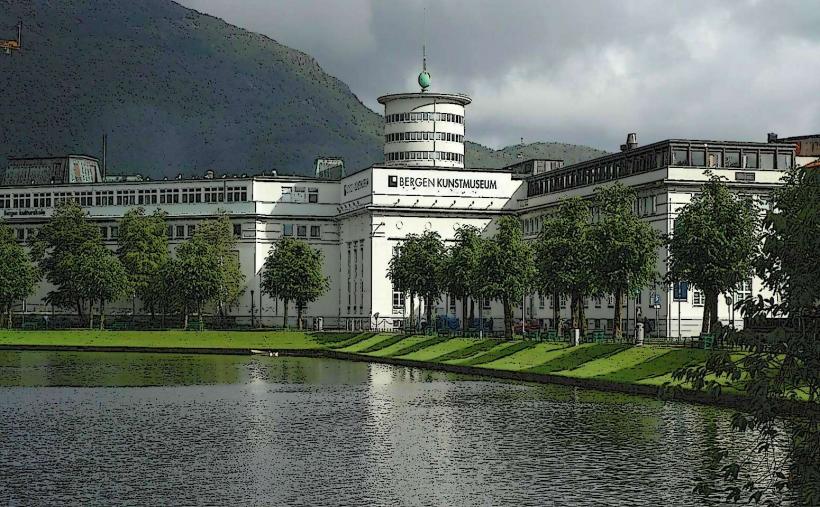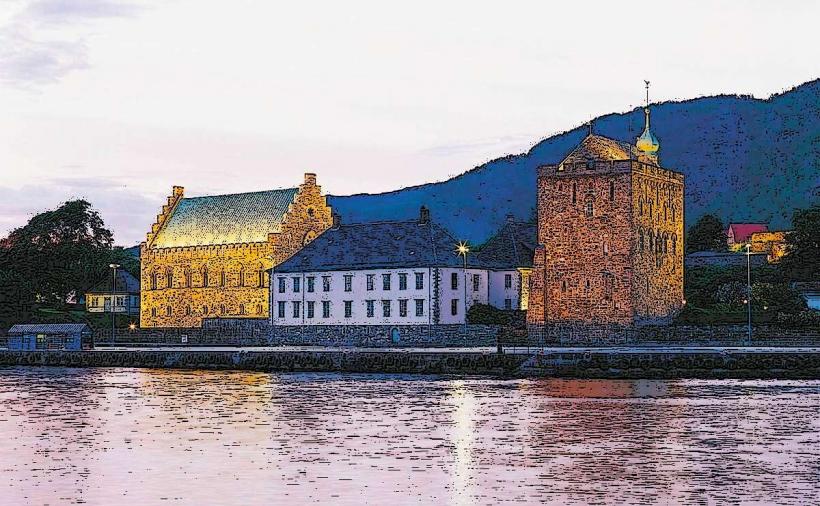Information
Landmark: Hanseatic WharfCity: Bergen
Country: Norway
Continent: Europe
Hanseatic Wharf, Bergen, Norway, Europe
The Hanseatic Wharf, known locally as Bryggen, is a series of historic commercial buildings lining the eastern side of the Vågen harbor in Bergen, Norway. It served as a central trading post for the Hanseatic League from the 14th to the mid-18th century.
Visual Characteristics
The wharf consists of 61 timber buildings, primarily constructed from wood, with some stone foundations. The structures are characterized by their narrow, gabled facades, often painted in shades of red, yellow, and white, with dark timber frames. The buildings are typically three to four stories high, with steep, pitched roofs. The architectural style reflects medieval German timber construction adapted to Norwegian conditions. The structures lean noticeably due to subsidence over centuries.
Location & Access Logistics
The Hanseatic Wharf is situated directly on the eastern shore of Vågen harbor in central Bergen. It is approximately 0.5 km from the Bergen Railway Station and 0.2 km from the Torget Fish Market. Access is primarily pedestrian. Public parking garages, such as KlosterGarasjen, are located within 1 km. Several city bus lines, including routes 3, 4, 5, and 10, have stops within a 200-meter radius, such as the "Bryggen" stop. The area is also accessible via ferry services docking at the nearby harbor.
Historical & Ecological Origin
The original wooden structures of Bryggen date back to the 11th century. Following a major fire in 1702, the current buildings were largely reconstructed on medieval foundations, adhering to the traditional building patterns and styles. The site was established as a major trading post by the Hanseatic League, a medieval commercial and defensive confederation of merchant guilds and market towns in Central and Northern Europe. Its primary purpose was the trade of dried cod from Northern Norway.
Key Highlights & Activities
Walking through the narrow alleyways between the wooden buildings is a primary activity. Visiting the Bryggens Museum provides archaeological insights into the area's history. The Hanseatic Museum and Schøtstuene offers a glimpse into the life of Hanseatic merchants. Shopping for local crafts and souvenirs is available in many ground-floor shops. Dining at various restaurants and cafes within the wharf area is possible.
Infrastructure & Amenities
Public restrooms are available near the Torget fish market, approximately 100 meters south of the wharf. Limited shade is provided by the narrow passages between buildings. Cell phone signal (4G/5G) is generally strong throughout the area. Numerous food vendors, cafes, and restaurants are integrated into the ground floors of the buildings and along the waterfront.
Best Time to Visit
The period from May to September offers the most favorable weather conditions, with longer daylight hours. Early mornings (before 10:00) or late afternoons (after 17:00) provide optimal lighting for photography, minimizing crowds and harsh midday sun. The wharf is accessible year-round, but some shops may have reduced hours during the off-season (October-April).
Facts & Legends
Due to centuries of construction and reconstruction on the same site, the ground level of Bryggen has risen significantly. Archaeological excavations have revealed layers of previous settlements, with the current street level being several meters higher than the original medieval ground. The buildings are known for their noticeable lean, a result of the soft ground and repeated fires and reconstructions.
Nearby Landmarks
- Torget Fish Market: 0.2km South
- Fløibanen Funicular: 0.3km East
- Bergenhus Fortress: 0.4km North
- St. Mary's Church: 0.3km Northeast
- KODE Art Museums and Composer Homes: 0.8km South

